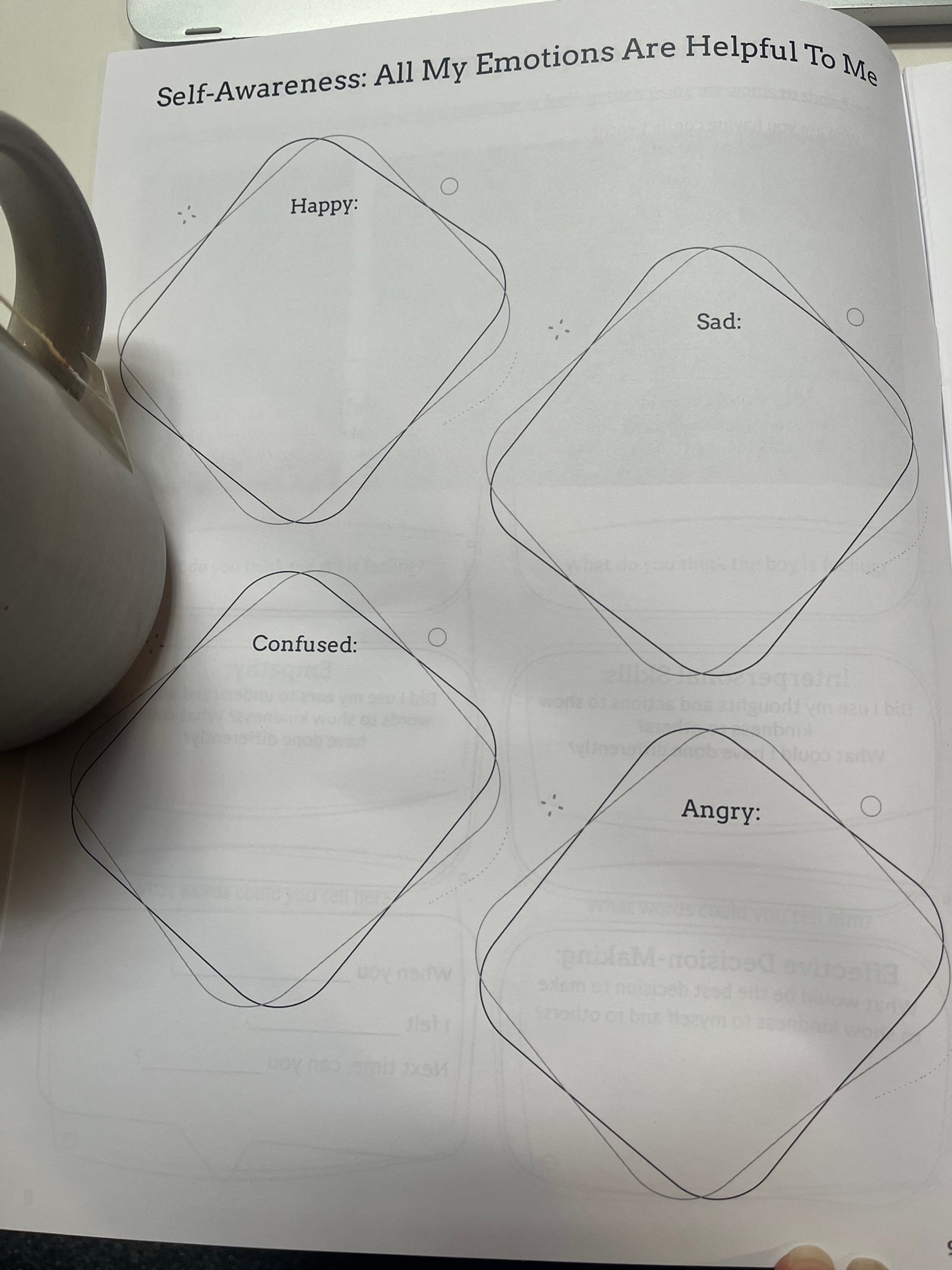
Can I learn from my emotions like a third grader?
What messages did you get when you exhibited emotions as a kid? Which emotions of yours made you more or less popular to those around you?
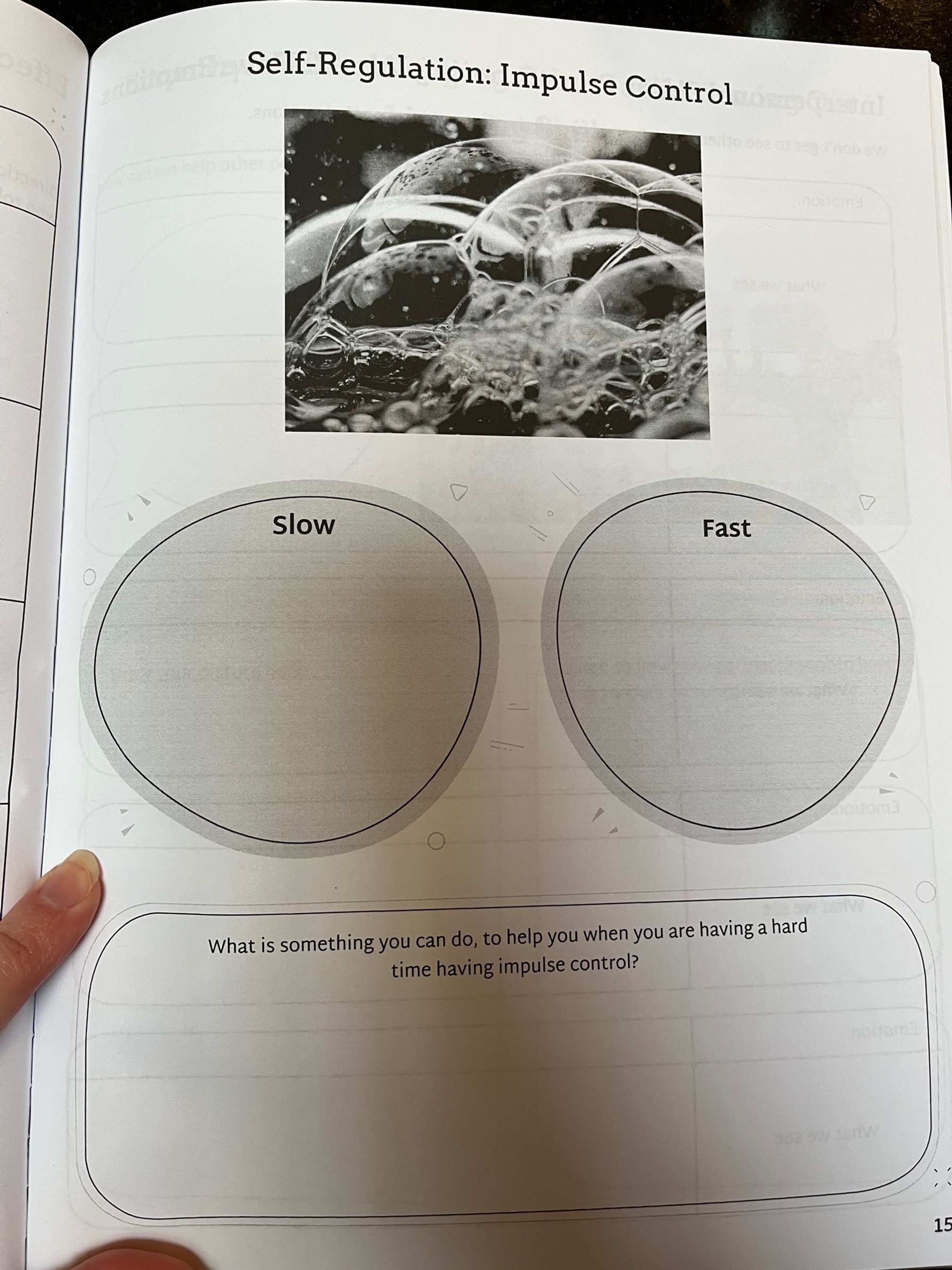
Can I control my impulses like a second grader?
It would have been nice for me to have learned this as a child instead of now, but here we are. Not bitter about it at all. :/
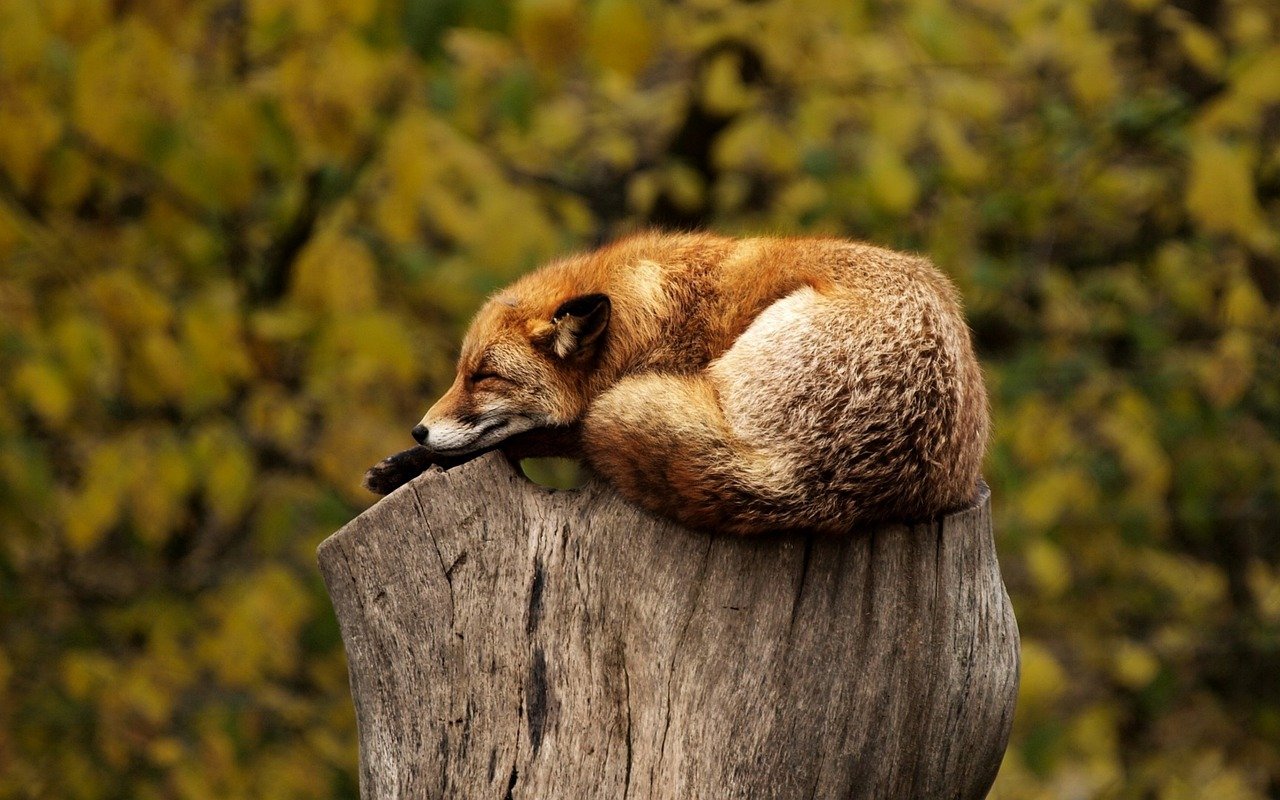
Can I let myself take a break?
Have you ever used work to regulate your own anxiety? Or to justify your anxiety?

How do I want to build this holiday break?
I get to make this holiday what I want and need and what my family wants and needs. I feel like that sounds so obvious, but it really is a whole new world for me. Without the self-awareness to learn what I’m feeling and then how to follow that feeling to my needs, I couldn’t lead myself or my family. I couldn’t show up and build the holiday and life I wanted.

Can I affirm myself like a 6th Grader?
I’m grateful to be learning how to stop hurting myself with my words now, but I wish I’d gotten this earlier. It could have saved me a lot of unnecessary suffering.

Can I handle my anger like a kindergartner?
So let’s start talking to kindergartners about their anger BEFORE we are in a moment when they are already angry. Because they don’t have a fully developed prefrontal cortex yet, and when they’re really dysregulated, they are totally offline. Same goes for us as adults actually even with our fancy prefrontal cortex. When we’re really flooded, we can’t show up kindly either. Honestly, I’m learning how to practice healthy behaviors to calm but not suppress my anger for the first time now too. And if I wait to practice when I’m in the middle of a really hard situation, it’s probably not going to go well. It’d be like trying to learn how to swim when you’re already drowning–not the right moment for new skill building.
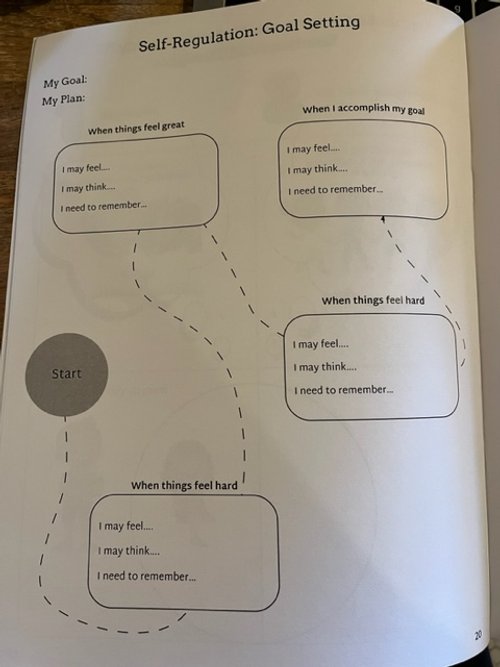
Can I achieve my goals like a fourth grader?
The fourth grade lesson I’m highlighting today is on self regulation for goal setting. I find regulating my emotions to be A LOT HARDER during the holidays, so I thought this might be just what I needed today. Let’s do it.

Can I make kind choices like a second grader?
I love the title of today’s lesson: “Effective Decision-Making: All My Choices Have Consequences.”
Ain’t that the truth? Yes, they do!
It sounds so simple, but I don’t think second grade me understood that my choices had consequences. I think she was just trying really hard to not make any mistakes in order to be a “good” kid. I didn’t have a neutral view that allowed me to step back a little bit and see my choices more objectively. Which, to be fair, is also part of having a more developed prefrontal cortex. But also, no one ever framed choices in this empowering, not punishing way. I was taught “good people make good choices and bad people make bad choices.” Not: “Some choices we can celebrate and some choices we have to apologize for.” Very different framing. A lot less shame then what I was taught, and a lot more room for growth and mistakes.
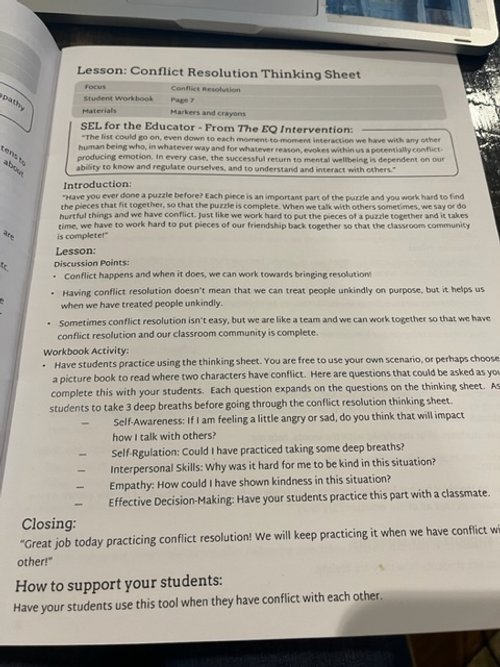
Can I forgive like a first grader?
Have you ever forgiven anyone before?
Like, for real.
I’m practicing forgiveness for the first time in my life now.
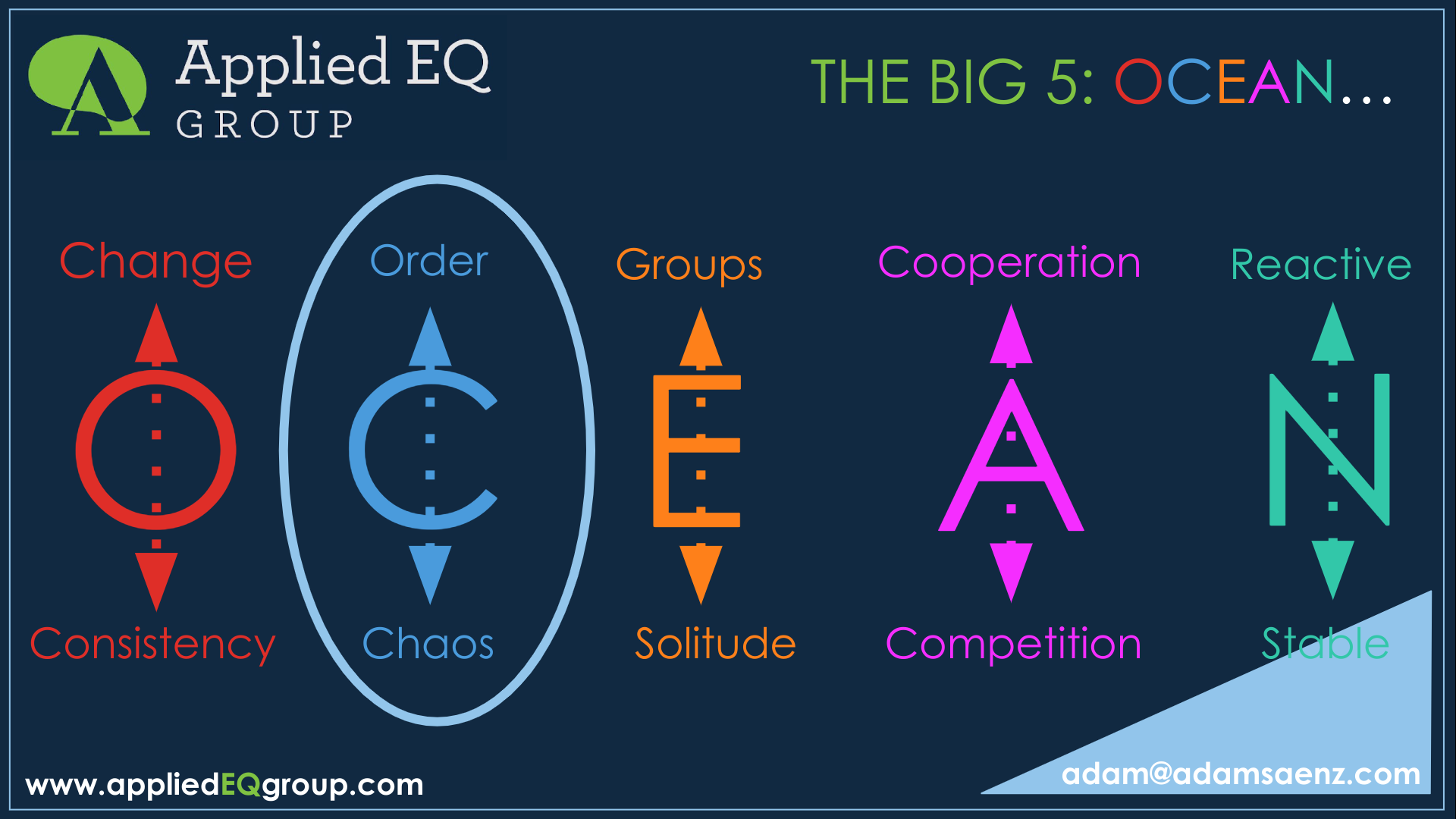
Do I prefer structure or chaos?
Where do you fall on the spectrum of conscientiousness? If you prefer a lot of structure, you might be highly conscientious. If you thrive in chaos, you might be lower on conscientiousness. Neither is good nor bad. We need all types. But that can be hard to remember in real life.

What am I feeling and who can I tell?
What are you feeling today? Can you name it? Do you dare claim it? Wrap your arm around it and welcome it in?
Whatever you’re feeling is okay. No feelings are bad or selfish or wrong. They just are. Neither good nor bad.
There are behaviors that are destructive and not okay. But all feelings are okay.
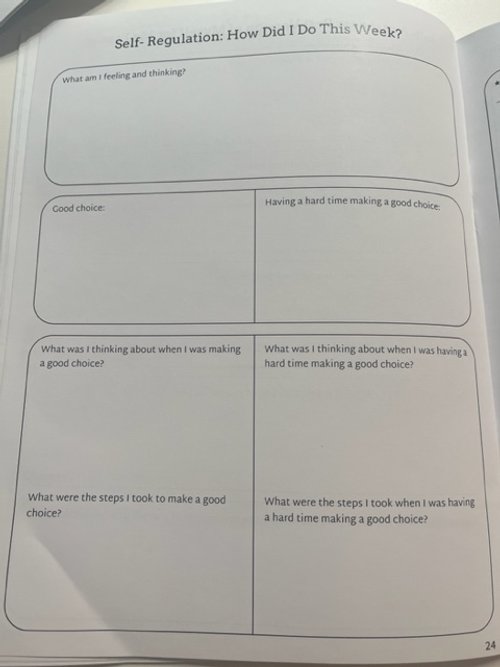
Can I self-regulate like a 7th grader?
When I think back to 7th grade me, I wonder how this exercise would have landed for her.I wonder if having this little bit of space and permission to feel through and reflect on my choices would have helped me. I can’t imagine a teacher telling me it’s okay to feel my feelings and giving me tools to make choices that align with who I want to be.

Can I resolve conflict like a kindergartner?
I’m learning that a key skill in navigating relationships is conflict. And I hate it. And I have a lot of room to grow my skills at it. So I’m trying to hold onto myself. Be real about the fact that I’m not great with conflict. And be kind to myself that it’s okay to not be good at something. And I can grow.
So today, I want to travel back to kindergarten. I’m going to feature a lesson on conflict resolution from our kindergarten curriculum. And I am humbled to admit that I am learning to navigate conflict on an elementary level. Truly. That stings, but I can take it because I want to grow.
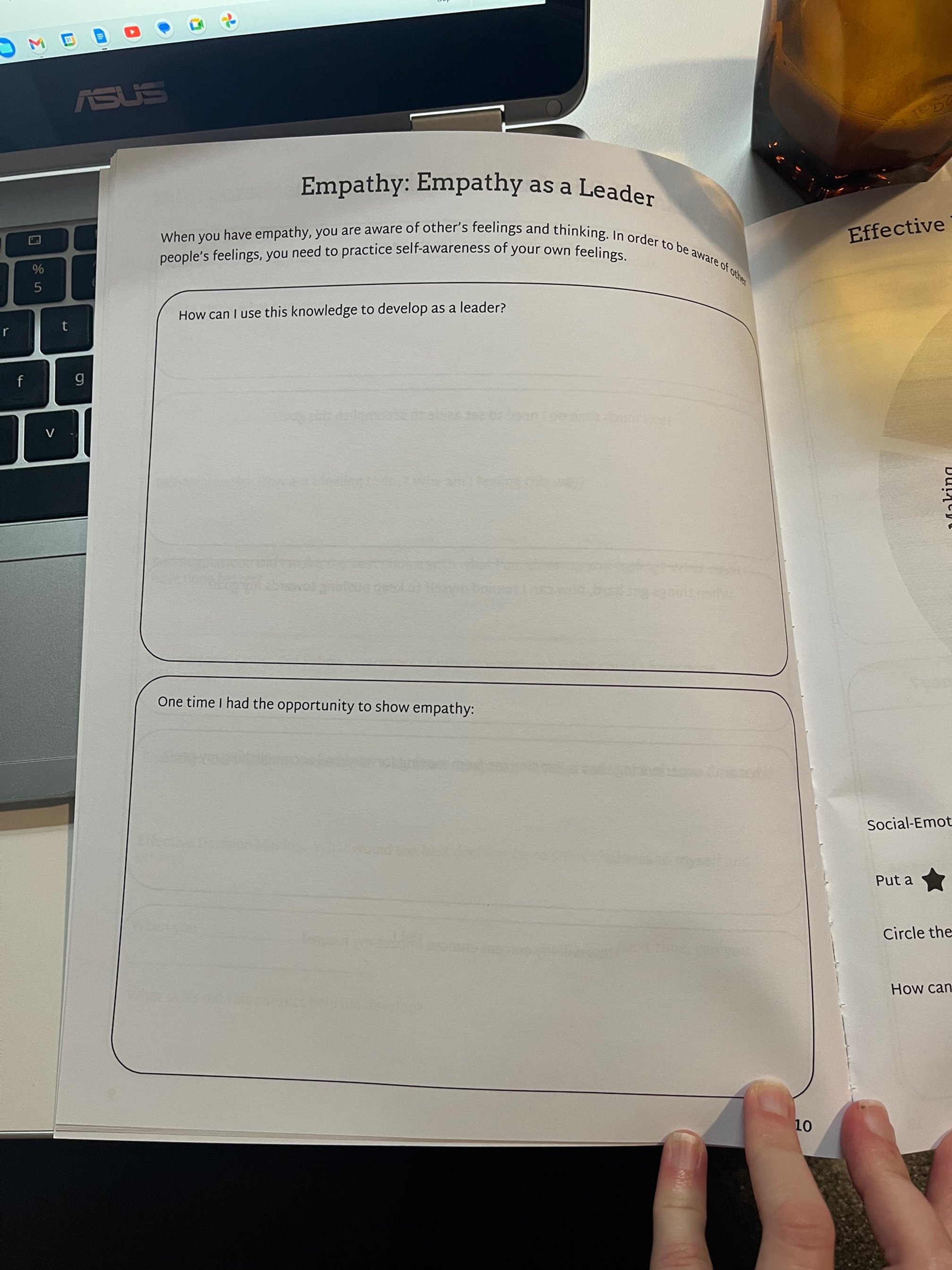
Can I teach students to lead with empathy?
I wish I would have gotten this earlier. As a kid, I could empathize with others to an extent. But I didn’t know how to empathize with myself. AND I didn’t know that it was fair for me to expect empathy from others. I didn’t know that healthy relationships have reciprocity and a balance of empathy. And that I could ask for this, “I’m not looking for solutions right now. I just need you to listen, and be present, and try to understand what I’m going through.”
So let’s do this differently for the next generation. Let’s EQuip kids with these skills, so they can start better empathizing with themselves and their classmates and practicing these skills earlier.
Today, I want to showcase a sample lesson from our 12th grade EQuipped Classroom Curriculum: “Empathy as a Leader”
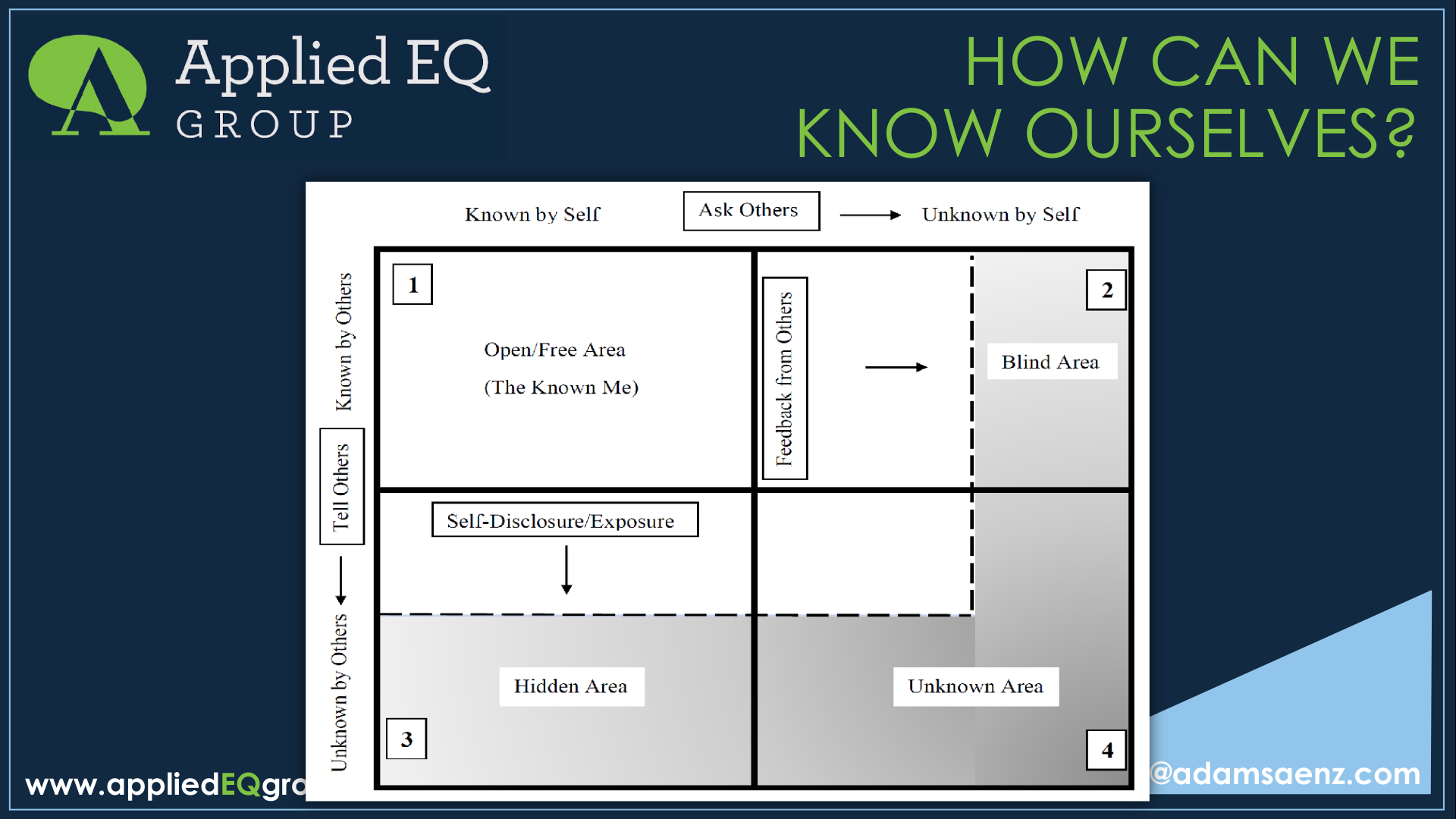
Can I take critical feedback?
My relationship to feedback has changed quite a bit over the years. As a student, I was hypervigilant about making all A’s in every class even through grad school. Terrified of messing up and getting in trouble as a young kid and then terrified of losing my scholarship as a college and grad student. As a teacher, I remember fearing feedback with true terror as well. I’d get sick to my stomach before every classroom observation. And then obsess afterwards over the slightest negative comment. I thought if I made the smallest misstep in my classroom that I would be fired. I knew intellectually that that wasn’t true, but it felt true. For me, the stakes for feedback were so high. Too high, I now know because I had no healthy self-esteem or internal security. I was totally dependent on outside approval, and I chased it with the destructive devotion of an addict.
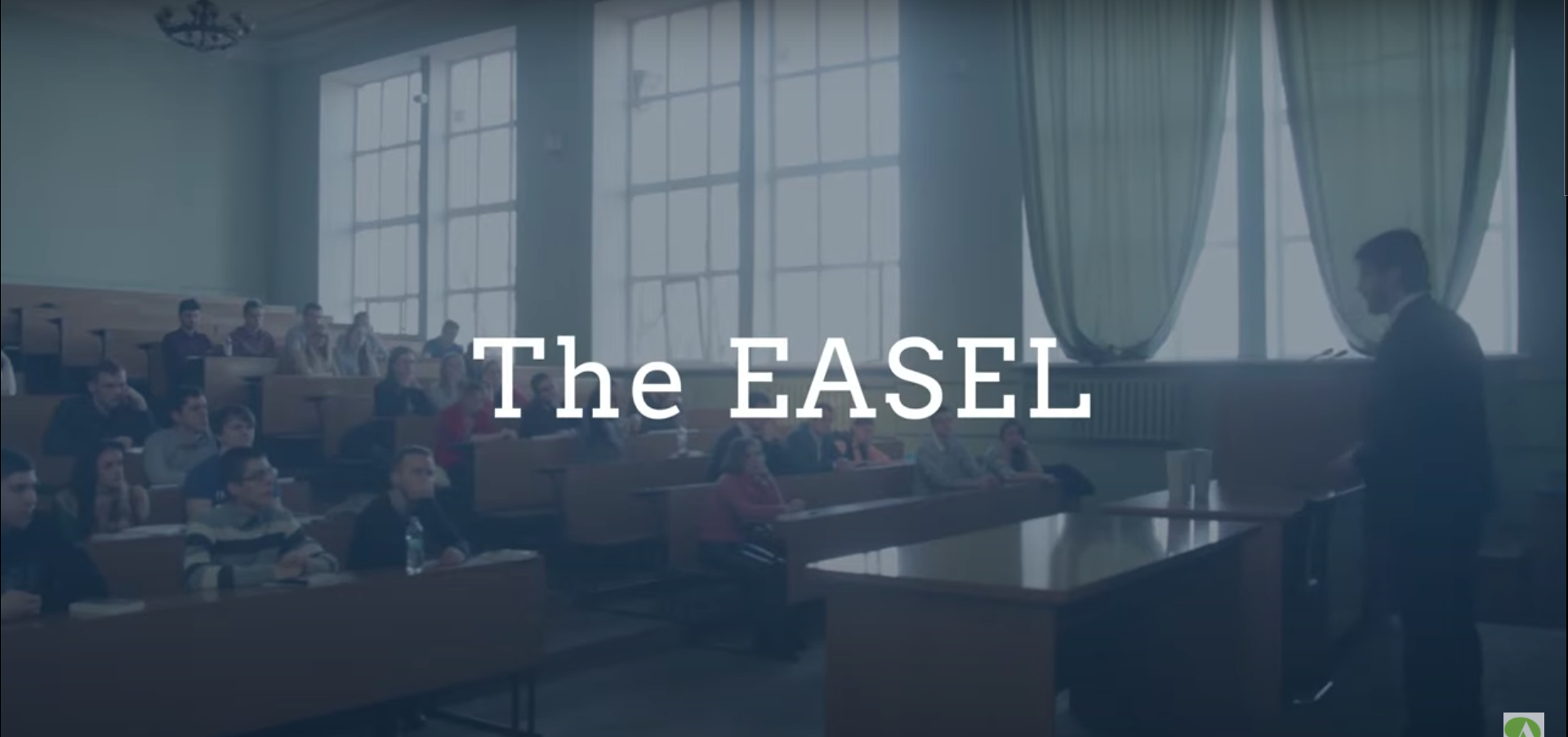
Do I get energized or drained by social interactions?
Do you know where your personality falls on the spectrum of extroversion and introversion? If so, well done increasing your self awareness. If not, bring us to your campus so we can help you know yourself better. One of my favorite trainings is watching teams of teachers talk about each other's personalities in our EASEL training.
If you don’t know where you fall, a quick test is asking yourself: “Where do I get my energy?” Am I fueled by lots of social interaction or do I crave solitude?
In general, extroverts get energy from other people and introverts get energy from being on their own.
It’s not hard to see how this difference could cause a lot of conflict between people:
